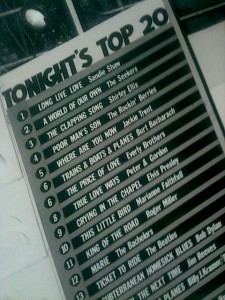 |
| http://sites.middlebury.edu/thekeystodanbrownsinferno/chapter-45/ |
Seven years old and shivering, I sat in the cloakroom outside Mrs Cope’s classroom. I’d been sent here for the dastardly crime of not writing enough. In half an hour I’d managed two sentences about a picture that bored me. I now awaited my punishment of being ‘seen’ by the head teacher, Mr Ella. Now I don’t hold any grudge towards Mrs Cope, she was just dealing with a reluctant writer in the way she knew how. But her methods sure didn’t make me want to improve as a writer. Looking back, I wonder, why didn’t I want to write and what could Mrs Cope have actually done to motivate me as a writer?
Jump to today, and perhaps you’ll be pleased to know that I have survived my early days as an unenthusiastic writer to present you with my blog. And you are currently reading it. Which I appreciate greatly, so thank you. But really what am I expecting from this undertaking? What is the purpose here, who is the audience and how am I serving them?
These are exactly the questions I ensure my students can answer before setting them off to plan or complete their writing.
Todays Authors
Little Johnny busts his guts writing his story. He even goes back and checks it against the success criteria we have agreed in class, making changes, choosing some more powerful verbs, more engaging vocabulary and even fixing some punctuation mistakes. But what now? Maybe we’ll have time for the class to peer assess each other’s work. I will read it of course and perhaps his parents will flick through it on consultation day. But what is the point of writing it with almost no one to read it?
Now I am aware that intrinsic motivation has been proven as the most effective motivation for self improvement, however it would take an incredibly motivated and self aware 10 year old (boy?) to write just for the purpose of improving writing. Many adults would struggle to manage that. So there has to be another reason for writing. ‘Because the teacher said so’ is not going to be enough in most young authors’ minds.
 |
| http://commons.wikimedia.org/wiki/File: Find_your_voice._express_yourself._creative_writing..jpg |
So writing for an audience does motivate students to produce their best writing, let’s agree on that. But where does this audience come from, how do we get the texts to the audience and how can we be sure they have even read it?
Today, teachers have many more tools at their disposal for generating an audience for their student’s work. Most of these are due to technology. Pioneers such as @deputymitchell are busy spreading the word for developing an audience for students’ writing using blogs. In fact, he works especially hard to develop a ‘Global’ audience for young writers. It’s a great idea, and I believe it is very effective.
Audience from?
But here is the crux of the developing problem. If everyone is writing for this audience, who is actually going to be the audience? Of course the same people as are writing you say. But does this actually happen? Everyone is motivated by the reaction they get for their writing, but are they giving a reaction to other people? Everytime they post something, are they reciprocating by reading and reacting to another writers post? I’m not convinced that this is actually happening. But it needs to, otherwise everybody will be so busy creating that nobody will have time to be the audience.
Unchecked, I think this could lead to ‘capitalist literature’. A sort of 'Top of the Pops' where only those exceptional pieces create any real audience for themselves and the vast majority of work goes unnoticed. Is this a positive message for our emerging writers? Do we really want to be making our students compete for an audience? I guess that is a personal choice. But for me, everybody deserves a chance to have their achievements recognised, even if they are small achievements in comparison to others’.
 |
Top of the Pops chart, BBC TV 1960s,
|
I think of the tools at Mrs Cope’s disposal. I guess she could have been more enthusiastic about my attempts, more positive in praising my efforts, and maybe she could have taken some of my work and displayed it. That could have helped. This last method was the only real method she had of widening the audience for my work. And even back then it was recognised as something worthwhile doing.
I have set myself the target of writing a blog post every three weeks. In that time I think I read about 15 or so other blog posts. So, all things being equal, I think I should receive around 15 views per post. Currently I get more, but I’d still be perfectly happy with that. However, one piece of writing per student every three weeks is not going to cut it as enough writing ‘volume’ for students to improve their skills sufficiently.
Possible Approaches?
- Be very selective with what is blogged, only the very best finished piece is allowed. Everything leading to this piece is working towards that final goal.
- Sign up for @duputymitchell’s ‘Quadblogging’ where classes around the world are matched to read and comment on each other’s blogs. Highly recommended, I’ve had great experiences using this.
- Put work up on the wall, particularly in shared areas.
Most importantly, be an audience for other writers and encourage your students to do the same.

I was, of course, motivated to come and comment on your blog and this post.
ReplyDeleteAnd you asked a few questions on my blog: http://blogs.bsj.sch.id/blog/2015/10/04/0-comments/
so I'll try to answer them.
You made a good point about the purpose of writing. You write for reflection and to organise your thoughts here. I do that to, on this blog:
http://www.coetail.com/annlautrette/
and it is true that there I don't really mind if no one comments, or even if no one reads it to be honest.
But the blogs.bsj central hub is for a different purpose. I have subscribed all parents and students and I have several reasons for writing - to give information, to provoke-thought and embed TOK, ATLs and all the other IB acronyms! Like a drip-feed of teaching for the students, and information I hope parents read.
So, why do I want comments? Actually, I'm not that fussed, but I want people to see commenting as something they can do because I want them to comment on student blogs really. A really good comment doesn't necessarily challenge, or critique (or criticise), rather it asks questions to further the thoughts of the writer, creates a dialogue and the total sum of knowledge increases because more than one brain is engaged. Which IB student couldn't do with some of that? (We are developing open-mindedness, international mindedness and so on.)
You asked if I was a participatory audience for others and yes I am. It was a requirement of the COETAIL course to be so, and so I developed that habit. Time is a factor of course. I am now reading and commenting on 94 student blogs. We are 5 teachers to have blogs too, and I do comment on their blogs. Because we are often posting in the realm of TOK, it always adds interest to the discussion to gain another perspective.
I agree that if you are going to blog, you should also be commenting - that's why we've made it a requirement for our students. But, encouraging them is also about normalising it. Why should students comment if teachers, and parents, don't?
That's what I was trying to encourage with my post. (and it did work...if but for a short time..)
Good points, and well made.
ReplyDeleteAlthough I wrote my comments to you, I was hoping that others may read them and realise that what I was saying may well apply to themselves too.
As you say, all part of normalising this process, which I agree with you when you say it increases the sum of all knowledge.
Hope that makes sense?!